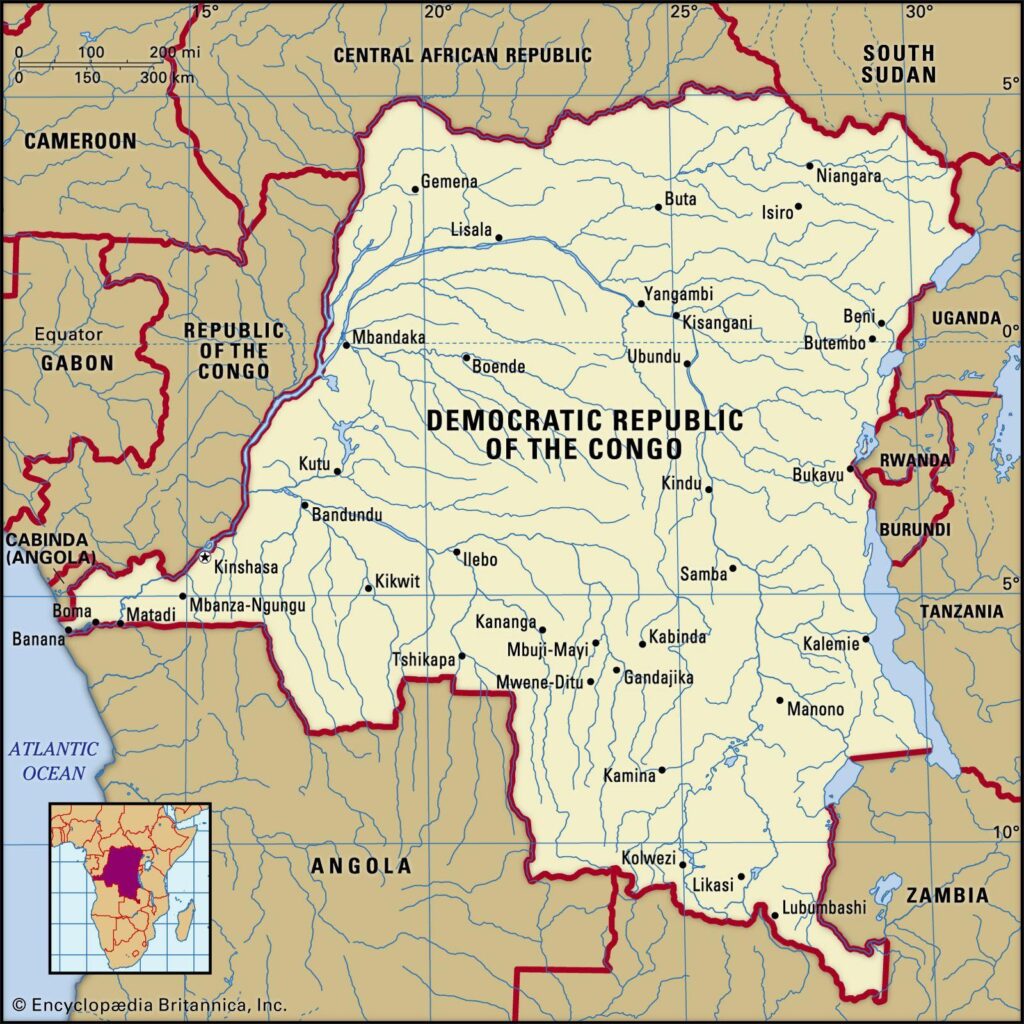What’s Next for the Democratic Republic of Congo?
As one of Africa’s largest and most resource-rich nations, the Democratic Republic of Congo (DRC) stands at a crossroads, confronting a potent mix of challenges and opportunities shaping its future. With its vast mineral wealth, including cobalt and copper, the DRC is essential to global supply chains, yet it continues to grapple with persistent political instability, humanitarian crises, and armed conflicts that hinder its development. The recent elections and the evolving geopolitical landscape have sparked new debates about governance, foreign investment, and international engagement. In this article, we delve into the current state of the DRC, examining the implications of recent developments, the role of external actors, and the potential pathways for stability and growth in a nation poised for transformation. Join us as we explore what lies ahead for the DRC and how its trajectory could impact not just the region, but the world at large.
The Role of Governance in Stabilizing the Democratic Republic of Congo
The Democratic Republic of Congo (DRC) stands at a critical juncture, where effective governance is paramount in addressing longstanding instability and promoting national unity. Governance structures play a pivotal role in ensuring the implementation of laws and regulations that uphold human rights, foster economic development, and facilitate peaceful dialogue among various political and social factions. Strengthening institutions is essential for building public trust, reducing corruption, and enhancing service delivery, all of which are key components for a stable and prosperous nation. Efforts must also be centered around inclusive governance, involving diverse community groups to ensure that marginalized voices are heard and that governance reflects the multicultural fabric of the DRC.
Moreover, regional cooperation is crucial in stabilizing the DRC and addressing cross-border issues such as armed conflict and economic disparities. Collaborative governance allows for sharing resources and knowledge to tackle challenges that transcend national borders. The integration of local governance structures with regional frameworks can help mitigate the risks of conflict by promoting dialogue and understanding among neighboring countries. An essential next step is to establish transparency mechanisms that monitor governance practices, thereby lending credibility to institutions and encouraging foreign investment-both vital for the country’s economic revival. The path ahead demands a commitment to reform and collaboration at all levels, as a stable governance framework holds the promise of a brighter future for the DRC.
Economic Opportunities and Challenges Amidst Regional Instability
The Democratic Republic of Congo (DRC) stands at a crossroads, where its abundant natural resources could either fuel economic growth or exacerbate existing conflicts. The rich untapped mineral wealth, including gold, tin, and coltan, presents significant economic opportunities for both domestic and foreign investors. However, the ongoing instability and violence in various regions pose formidable challenges to harnessing these resources effectively. Stakeholders must navigate a complex landscape characterized by corruption, infrastructure deficits, and political turbulence, which not only deter investments but also hinder equitable wealth distribution. Recognizing the potential for sustainable economic development, initiatives aimed at improving governance and community involvement are crucial for transforming the DRC’s resource curse into a blessing.
Alongside these opportunities, the DRC faces a myriad of challenges that could undermine its economic prospects. To illustrate these issues, consider the following factors impacting the economic landscape:
- Political Instability: Frequent changes in leadership and civil unrest disrupt business operations.
- Infrastructure Challenges: Poor transportation networks limit market access and increase costs.
- Security Concerns: Ongoing conflicts in eastern regions deter foreign investments.
- Environmental Issues: Mining and exploitation can lead to ecological degradation, affecting local communities.
As the DRC grapples with these dynamics, fostering a conducive environment for business while promoting social responsibility will be essential. Only through strategic collaboration between the government, local communities, and international partners can the nation hope to stabilize its economy and realize its full potential.
Pathways to Peace: Recommendations for a Sustainable Future in the DRC
To foster sustainable peace in the Democratic Republic of Congo, a multifaceted approach is essential, integrating humanitarian efforts with governance reforms. Strengthening local institutions must be prioritized, enabling them to handle disputes and administer justice effectively. Community engagement is critical, mobilizing grassroots organizations to participate in peacebuilding initiatives. These strategies can include:
- Educational programs that promote conflict resolution and civic responsibility.
- Empowering women and marginalized groups to take active roles in decision-making processes.
- Fostering dialogue among different ethnic communities to build trust and understanding.
Additionally, international cooperation plays a crucial role in stabilizing the region. External actors should seek to establish partnerships that prioritize Congolese sovereignty while investing in economic development. To further these objectives, collaborative frameworks that align the goals of the DRC with donor nations can be developed. An effective model could encompass:
| Focus Area | Action Plan |
|---|---|
| Health Sector | Investment in healthcare infrastructure and disease prevention programs. |
| Resource Management | Implementing sustainable practices and transparency in resource extraction. |
| Security | Collaborating with regional partners to combat armed groups. |
Insights and Conclusions
In conclusion, the future of the Democratic Republic of Congo hangs in a delicate balance, shaped by a convergence of political, economic, and social factors. As the nation grapples with ongoing challenges-including governance issues, resource management, and regional security concerns-the path forward remains uncertain. The engagement of international actors and organizations, including the Council on Foreign Relations, will be critical in supporting sustainable development and democratic governance.
As Congolese citizens continue to advocate for their rights and aspirations, the global community must remain vigilant and responsive to the evolving situation. The DRC’s vast potential for growth and stability hinges not only on its rich natural resources but also on the resilience and agency of its people. With the right support and concerted efforts, the Democratic Republic of Congo can pave the way toward a brighter and more stable future, making it a focal point for both regional and international stakeholders in the coming years.
